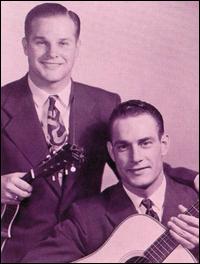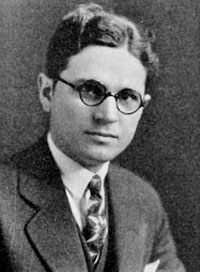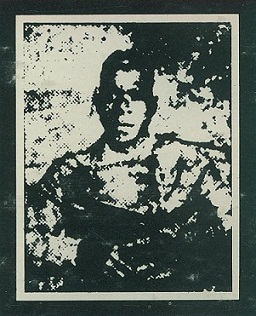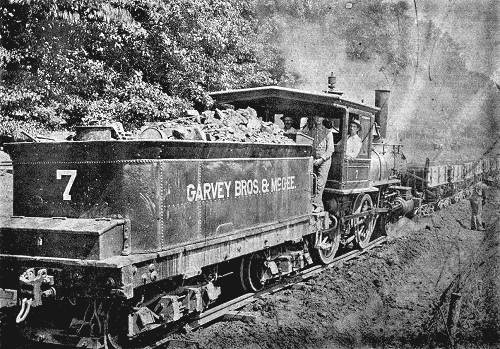
Set Four: The "Lost" Volume; Disc One; Track Five: "Adieu, False Heart" performed by The Arthur Smith Trio. Recorded in Charlotte, North Carolina on January 26, 1938.
Born near Bold Springs, Tennessee on April 10, 1898, "Fiddlin'" Arthur Smith learned to play violin at an early age. Married at sixteen, Smith's wife, Nettie, became a performing partner. Later, their daughter, Lavonne, would perform with several of Smith's groups.
Smith performed mainly at local dances and fiddler's conventions in his early years. However, a job working for a railroad company in Dickson, Tennessee involved considerable travel, and Smith met and was influenced by fiddlers from other regions. He began competing in fiddle contests, winning several.
Smith made his debut on the Grand Ole Oprey on December 23, 1927, and became a regular in 1932. Smith's association with the Oprey would make him one of the most influential country fiddlers, his long bow style bearing considerable influence on old time and bluegrass players.
Smith formed several groups over the years, some of which featured the Delmore Brothers, as well as Kirk and Sam McGee (who were associated with Uncle Dave Macon, another Oprey veteran). The best known group Smith performed with was the Dixieliners.
Smith made his recording debut in 1935, along with the Delmore Brothers. He made many recordings over the next several years, recording for such labels as Bluebird, Victor, and Montgomery Ward.
Smith continued to work full-time for the railroad while also pursuing a career as a working musician. By 1938, the year this recording was made, the stress had caused a troublesome drinking problem that led to his suspension from the Grand Ole Oprey. With Roy Acuff's help, Smith was able to return to the Oprey and to recordings.
Smith had a brief career as a film actor during the 1940s, appearing in low budget westerns. His film career lasted until 1948, after which Smith signed with the newly formed Capitol Records. After a short stint on Capitol, Smith retired to Nashville where he worked as a carpenter.
One of Smith's songs, "Beautiful Brown Eyes," was covered by Roy Acuff during the early '50s. The recording was a hit, and led to several other cover versions. The other recording artists, however, treated the song as a folk song in the Public Domain and did not credit or pay royalties to Smith. Smith successfully sued and received a lump sum.
In 1957, Smith staged a comeback, recording with Merle Travis, as well as Kirk and Sam McGee. The recordings with the McGee Brothers were issued on an LP that was released to much acclaim in the mid-60s. in 1965, Smith and the McGee Brothers appeared at the Newport Folk Festival. Smith made his final appearance in 1969, before retiring for the last time. He died on February 28, 1971.
"Adieu, False Heart" is a folk song that likely dates from the 1860s or 70s. It was first collected in Campell County, Virgina in 1931. For many years, Smith's recording was the only one of this song.
Adieu false heart, since we must part.
May the joy of the world go with you.
I've loved you long with a faithful heart,
But I never anymore can I believe you.
I've seen a time I'd have married you,
And been your constant lover.
But now I'll gladly give you up
For one whose heart's more truer.
My mind is like the constant sun.
From the east to the west it ranges.
Yours is like unto the moon.
It's every month a-changing.
When I lay down to take my rest.
No scornful morn to wake me.
I'll go straight ways unto my grave.
Just as fast as time can take me.
This recording features Arthur Smith on vocal and fiddle, with Alton Delmore on guitar and Rabon Delmore on tenor guitar. The tenor guitar is a four stringed instrument, similar in design to the guitar. It is sometimes smaller than a standard guitar, but not always. It is believed to have been invented around the turn of the twentieth century. Tenor guitars were developed so that players of the four stringed banjo could double on guitar.
"Adieu, False Heart" is, essentially, a kiss-off to a faithless lover. The song is sung here in a deadpan fashion. Smith betrays no trace of sadness, which goes along with the lyric's acceptance that the lover is false and needs to go.
"Adieu, False Heart" was the title track of a 2006 album by Linda Ronstant and Ann Savoy.
Like several of the other artists who have appeared on this volume of the Anthology, Smith was primarily associated with radio.
"Adieu, False Heart" is the second of two songs in a row recorded in Charlotte, North Carolina.
The Shameless Plug Department: It's been a long time since I've done a podcast episode of "Where Dead Voices Gather." This is partly due to my busy work schedule and partly due to the fact that I now put together a two-hour weekly radio show in my spare time. I do have plans for a seventh episode of "Where Dead Voices Gather," which I hope to put together in the next week or so. In the meantime, you can still listen to the old episodes.
You can also become a fan of "Where Dead Voices Gather" on Facebook and follow us on Twitter. Where Dead Voices Gather: Using today's technology to promote yesterday's music!
Remember that I host "Doin' The Thing," a weekly jazz program on KRML 1410 AM and 94.7 FM in Carmel, California. The show airs from 8 PM to 10PM (Pacific Time) on Sunday nights. You can also listen online by visiting the KRML website at 8 PM Pacific, 11 PM Eastern Time. Please tune in and give me feedback!
Here's Wild Carrot performing a version of "Adieu, False Heart" in 2008.
Download and listen to Arthur Smith Trio - "Adieu, False Heart"








